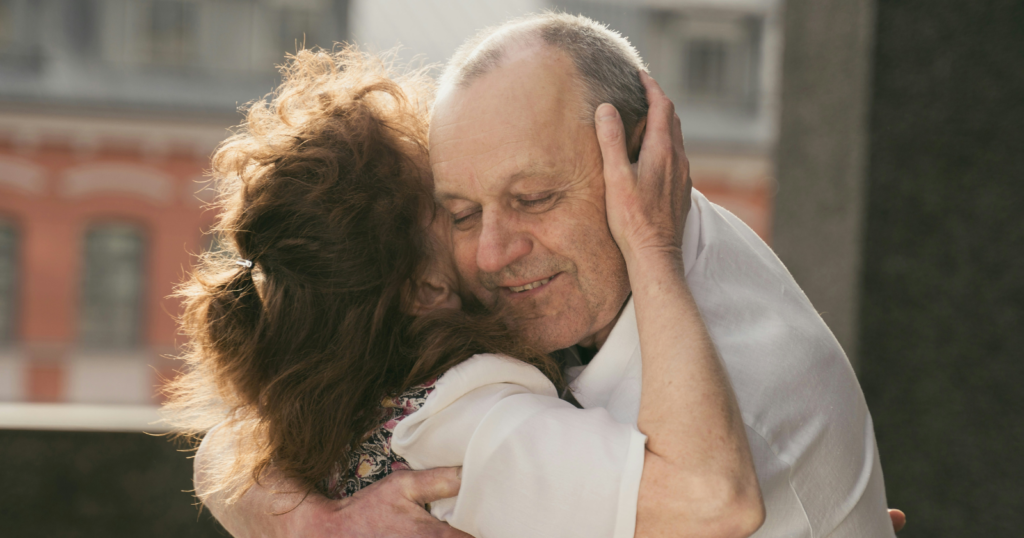I remember sitting on my yoga mat one morning, feeling more at peace than usual.
The sun was streaming through the window, and I couldn’t help but notice how calm my mind felt.
I’d just finished a brief meditation, the kind that almost always leaves me with a clear head and a brighter perspective.
That day, I realized something profound about aging—physically, time moves forward whether we like it or not, but emotionally, we have a lot more say in how we evolve.
That’s what this article is about: the eight indicators that show you’re emotionally aging in a healthier way than most people.
Because, while we can’t control the passage of time, we do have the power to shape how we grow.
1. You reflect on your feelings without judgment
I’ve learned that self-awareness often starts with being curious about our own emotions.
Sometimes, I catch myself feeling tense or worried, and instead of brushing it aside, I gently ask, “What’s going on here?”
It’s not about punishing myself or overthinking, but making space to understand the root of that tension.
Before we move on, think about how you can adopt a small check-in practice. Some people do it in the car or while brushing their teeth.
It doesn’t have to be formal—just a moment to notice what’s going on in your mind and heart.
2. You set boundaries even when it’s uncomfortable
I used to avoid saying “no” because I hated the idea of disappointing others.
Over time, that habit led to burnout and resentment.
It’s only when I started setting healthy boundaries that I realized an interesting truth: limits create respect, both for ourselves and for the people around us.
Research suggests that individuals with clear personal and professional boundaries often report higher levels of job satisfaction and lower levels of stress.
Get Smarter Everyday Join Us On WhatsApp
It makes sense—when we define what’s acceptable in our lives, we protect our energy.
This isn’t always easy, especially with family or close friends.
But each time you choose a boundary—like turning off your phone after a certain time to cultivate peace—you strengthen your emotional resilience.
3. You willingly confront your mistakes
There’s a moment of vulnerability that comes with admitting a slip-up or wrong choice.
I still feel uneasy owning my errors, but I’ve noticed how much better I sleep at night when I acknowledge them openly.
As Brené Brown once said, “Vulnerability sounds like truth and feels like courage.”
If you’re already someone who takes responsibility when you mess up, you’re aging emotionally in a way that builds character.
No one enjoys looking at their own flaws under a microscope, but it’s the fastest path to growth.
Avoiding mistakes only buries them. Facing them head-on gives you the freedom to move forward without shame or guilt.
The key is to learn the lesson and then let it go.
4. You choose curiosity over judgment
When a friend cancels plans last-minute or a co-worker reacts sharply, some people jump straight into blaming mode.
But if you’re in the habit of first wondering why—maybe the friend had a rough day or the co-worker is stressed about something outside of work—you’re already ahead of the curve.
As Mark Manson once noted, “We can be truly successful only at something we’re willing to fail at.”
That ties into curiosity.
Get Smarter Everyday Join Us On WhatsApp
If you’re not curious about what might be going on beneath the surface, you risk shutting down possibilities for empathy and personal growth.
Personally, I used to jump to conclusions when people didn’t meet my expectations.
Now I try to take a moment, breathe, and consider the bigger picture.
That mental shift from judgment to curiosity can defuse tension and help preserve relationships.
5. You see personal responsibility as empowering
Blaming traffic for being late or your boss for your work stress feels momentarily comforting.
But it also keeps you stuck.
One of the biggest indicators of healthy emotional maturity is the willingness to own your part in whatever happens.
I don’t expect anyone to take blame for things outside their control.
But I’ve noticed that people who say, “I might be partially responsible here,” tend to solve problems faster.
They shift from victim mode into action mode, finding ways to adjust their approach instead of waiting for someone else to fix everything.
If you recognize this trait in yourself, that’s a good sign you’re aging emotionally in a productive way.
When we consistently practice it, we train our minds to seek solutions instead of staying in a loop of complaining.
6. You focus on daily mindfulness
Mindfulness doesn’t have to be an elaborate event.
I squeeze it in during everyday moments—like while waiting in line at the grocery store or sipping tea before starting my work.
Get Smarter Everyday Join Us On WhatsApp
Being present, even for a few breaths, can shift my entire day.
This small practice pays off in huge ways.
Here is a simple example of what I do:
-
I close my eyes and take three deep breaths.
-
I notice one area of tension in my body.
-
I set an intention for how I want to feel in the next few hours.
Just that short routine can create a ripple effect of calm that carries me through a busy schedule.
7. You let yourself feel sadness without wallowing
There’s a big difference between acknowledging sadness and staying stuck in it.
Emotionally healthy people allow themselves to feel the pain of a setback, loss, or disappointment without glossing over it.
They don’t rush to “get over it,” but they also don’t treat it like the end of the world.
I see it as a form of emotional digestion.
When something hurts, I let myself cry or vent to a close friend. But then I remind myself there’s life on the other side of that feeling.
That balance—feeling sadness, but not sinking into endless despair—is part of aging well emotionally.
According to research, actively processing difficult emotions (such as through meditation) can lower the risk of chronic stress and even reduce physical symptoms associated with anxiety.
Get Smarter Everyday Join Us On WhatsApp
This is your mind and body working together toward healing.
8. You keep a sense of humor about life
We’re almost done, but this piece can’t be overlooked.
Holding onto humor doesn’t mean you make light of serious situations.
It just means you see the bigger picture: life is filled with ups and downs, and laughter can diffuse tension in a remarkable way.
I’ve had arguments with my husband that ended in laughter because one of us cracked a silly joke at the perfect time.
That moment of shared humor can break the cycle of anger or frustration, reminding us there’s more to our relationship than a single disagreement.
A sense of humor signals that you’re resilient enough to smile at the unpredictability of life.
In many ways, it’s a shortcut to emotional flexibility.
Final thoughts
When I look at people who manage to stay emotionally vibrant—no matter their age—I see these same qualities show up again and again.
They reflect on their emotions, set clear boundaries, confront mistakes, stay curious, and embrace responsibility.
They weave mindfulness into their days, allow sadness to move through them, and keep a spark of humor alive.
These eight signs aren’t exclusive to any particular personality type.
They’re behaviors we can all nurture with practice and patience.
If you recognize them in yourself, know that you’re probably aging better emotionally than you realize.
If you see gaps, that’s okay too. Growth is always an option.
Get Smarter Everyday Join Us On WhatsApp
The next time you catch yourself feeling overwhelmed or worried about getting older, remember that emotional maturity is largely in your hands.
It’s not something that just happens—it’s something you cultivate. And every bit of intention you bring into that process makes a difference.
If you found this blog post insightful be sure to share it with those out there that are still not aware of it Don't forget to FOLLOW US on Facebook and hit the LIKE button for more new content. Thanks so much for reading.....






